10The Japanese Pauper Who Should Have Been A Prince
At 60 years old, a Japanese man found out that he was the eldest son of a wealthy family. His three biological brothers and the boy who was switched at birth with him in 1953 had grown up with all the advantages money can buy, including education at private schools. His counterpart had become the president of a real estate company. Meanwhile, this man was sent home as the son of two poor parents and the youngest brother of four children. His adoptive father died when he was just two years old, condemning his wife to support her four sons on welfare. All five lived in a 10-square-meter (100 ft2) apartment with a radio as their only luxury. “It was like she was born to experience hardship,” said the man of the woman he now calls his foster mother. She died by the time he learned he wasn’t her son. After junior high school graduation, he went to work at a small factory, later attending high school at night. Eventually, he became a truck driver, and he never married. In his later years, he helped care for his three foster brothers, one of whom had experienced a stroke. The three younger brothers of the man who mistakenly grew up wealthy had questioned his parentage because he didn’t look like anyone in the family. After they got the hospital records and had DNA tests done, they were sure of the mistake. They believe the switch occurred when a midwife bathed both babies and gave them to the wrong mothers afterward. The wealthy mother said her baby came back in the wrong clothes. After suing the hospital, the man who grew up poor was awarded the yen equivalent of $317,000. Although he wishes he could have been raised by his real parents, he’s happy that his real brothers want a relationship with him now. However, he was devastated that he never met his biological parents, both of whom were dead by the time he learned of the error. “As I saw the picture of my parents, I wanted to see them alive,” he said. “For months, I could not hold back the tears every time I saw their pictures.”
9The Ex-Partner Who Denied Paternity
In 2010, two women were sent home from the Tambo Memorial Hospital in Boksburg, South Africa, with the wrong baby daughters. Neither suspected anything. In 2013, one of the women sued her ex-partner for child support, but he denied paternity. A DNA test showed that the baby didn’t belong to either of them. After discovering the switch, she attended counseling sessions with the other mother, and she met her biological daughter. It was difficult for her because the other child looks like her. She initially wanted her biological daughter back, but the other mother refused to hand over the child. After four years, both acknowledge that the other woman shouldn’t have to give up a daughter she’s raised as her own. Nevertheless, the case has gone to court. According to South African law, a decision must be made that is in the best interests of the two young girls. Zulu law and culture will also be considered because both families are Zulu. They must also determine if the man who originally denied paternity is the biological father of the other girl. No matter what happens, the final decision will be traumatic.
8The Charlottesville Car Accident
In 1995, Rebecca Chittum and Callie Johnson were switched at birth in a Charlottesville, Virginia, hospital. When the girls were three years old, Paula Johnson (who was raising Callie) and her boyfriend, Carlton Conley, had a bitter breakup. During their occasionally violent relationship, Carlton had gone to jail for a short time for assaulting Paula. She had a history of difficult romantic relationships, with each of her children fathered by a different man. In daughter Callie’s case, Carlton demanded a DNA test after Paula wanted more child support from him. The test revealed that Callie Johnson wasn’t their child. The story for the couple raising Rebecca Chittum was quite different. Whitney Rogers, a high school cheerleader who became a mother at 16, and Kevin Chittum, her 22-year-old carpenter boyfriend, were very much in love. Surrounded by adoring relatives, the young couple doted on their little girl and had another child a little over a year later. Eventually, they bought a house and planned to marry. Then, in a bizarre twist, the day the hospital realized their mistake, both Kevin Chittum and Whitney Rogers died in a car accident. They never learned that Rebecca wasn’t their biological daughter. Meanwhile, the hospital wouldn’t tell Paula Johnson the name of her biological daughter because of confidentiality rules. The media got involved, and the missing baby was publicly identified by USA Today a few days later, just a couple of weeks after Kevin and Whitney’s deaths. At first, it seemed as though Paula Johnson and both sets of grandparents raising Rebecca Chittum would come to an amicable arrangement. But soon, the entire mess landed in court, with everyone feuding with each other and suing the hospital. The court ruled that the girls would stay with the families that raised them and visit the other family on a set schedule. Callie Johnson continued her visits, but Rebecca Chittum stopped visiting in her early teens. Callie Johnson has become close to her biological sister, Lindsey Chittum. Someday, the two girls want to move into the house that Kevin Chittum bought before he died. Meanwhile, Carlton Conley, the person who initially demanded the DNA test, fell in love with biological daughter Rebecca’s aunt (Kevin’s sister) during visitations. Carlton and the aunt got married and began raising Rebecca and Lindsey Chittum (Kevin’s other daughter).
7The Argentinean Birth Weight Dilemma
Two mothers had their daughters accidentally switched at the private clinic where they gave birth in San Juan, Argentina in 2013. Maria Lorena Gerbeno gave birth by cesarean section to a 3-kilogram (6.5 lb) girl. However, when she received her child later, her doctors told her she had experienced a breech birth, and her daughter was 3.75 kilograms (8.3 lb). “I told them that could not be,” said Gerbeno. “But they said I must have misunderstood. I never got any answers.” She knew the situation wasn’t right but couldn’t get any further until she returned to the clinic a few weeks later for a checkup. There, she met Veronica Tejada, the other mother involved in the mix-up. When the two women began talking, they realized their daughters had each other’s birth weight. Gerbeno, a lawyer, took legal action, and DNA tests were ordered by the court. The tests confirmed the women’s suspicions, and the babies were switched back immediately. Fortunately, each mother took loving care of the other baby before the final switch.
6The Jaundiced Babies Who Shared A Crib
Two girls and a boy were born with jaundice around the same time in Cannes, France, in 1994. The clinic had just two of the special incubators needed to treat them, so the girls shared one. A nurse accidentally switched the babies when returning them to their mothers. Each mother immediately noticed that her baby had the wrong hair length. For Sophie Serrano, her baby suddenly had thick hair, but a nurse assured her that the jaundice treatment could make a child’s hair grow faster. When the other mother, a Creole from the island of La Reunion, questioned why her baby had lost her hair, she was told that phototherapy shortens hair. Both women left the hospital without suspecting a baby swap. However, as Sophie Serrano raised her baby, Manon, people began to question if she’d had an affair. The child developed dark skin and frizzy hair, looking nothing like either parent. Eventually, her partner left her, partially over suspicions that the child wasn’t his. When the girl was 10 years old, Sophie’s partner insisted on a paternity test, which revealed that Manon was neither parent’s child. Sophie Serrano says her love for Manon only increased when she discovered that the child was not her real daughter. After taking legal action against the clinic, Sophie eventually met her biological daughter. But she had no maternal feelings for the other girl. “It is not the blood that makes a family,” Sophie said. “What makes a family is what we build together, what we tell each other. And I have created a wonderful bond with my nonbiological daughter.” Although the two families met several times, both decided not to continue the relationship. The girls stayed with the parents who had raised them. Meanwhile, the clinic and its insurer were ordered to pay a combined €1.88 million ($2.13 million) to the two families.
5The Mother Who Didn’t Tell What She Knew
After an inadvertent switch in the Old San Hospital nursery, two babies went home with the wrong parents in Prairie du Chien, Wisconsin, in 1951. Mary Miller knew from the beginning that she took the wrong baby home because the child weighed less than in the hospital. As she grew, the daughter, Martha (nicknamed “Marti”), looked and acted differently from Mary’s other children, too. Kay and Bob McDonald also took the wrong baby home—the daughter they named Sue and raised as their own. Sue also looked and acted differently from her family. But they never suspected anything was wrong. Shortly after taking the baby home, Mary told her husband, the Reverend Norbert Miller, about the mix-up. But he didn’t want to taint the reputation of their doctor, especially since the doctor hadn’t charged for his services and they were short on money. Norbert told Mary that the baby was theirs now, mix-up or no. He ran a strict household, and Mary believed it would ruin their marriage if she pursued the truth openly. In the 1950s, she had no way to support seven children without him. So Mary tried another strategy. The Millers and the McDonalds occasionally saw each other through their churches. Mary also invited the McDonalds to dinner once. Each time, she hinted to Kay McDonald that the girls had been switched. But Kay thought she was crazy. Mary also confided to people who knew both families, but no one told the McDonalds. When Norbert finally saw his biological daughter, Sue McDonald, in 1994, he immediately recognized her as his own. Ninety days later, Mary Miller wrote letters that revealed the truth to the two women, each 43 years old now with their own children. DNA tests confirmed the switch. Sue McDonald was immediately welcomed into the Miller family. But Marti Miller found that only her biological brother, Bob, welcomed her. She felt the Millers were pulling away, and the McDonald parents were reserved out of loyalty to Sue McDonald. Mary Miller was straightforward to a fault, not realizing she was hurting Marti Miller’s feelings with her words. Norbert kept quoting scripture and referring to the will of God. He asked everyone for forgiveness. It’s been a difficult road to melding the two families, but things have become less tense over time.
4The Foster Care Switch
In 1971, Laura Cain gave birth to twin boys, George and Marcus, in Ottawa, Ontario. Unable to care for the boys on her own, she placed them in temporary foster care until she married their father, Randy Holmes, two months later. Then she asked for the return of her babies from Children’s Aid Society. However, there was a mix-up in the foster home, which had more than two boys at the time. Unknown to anyone, the real Marcus had been mistakenly given up for adoption to Carroll and Jim Tremblay. He was renamed Brent Tremblay. Meanwhile, Laura received her son, George, and another baby whom she believed to be Marcus. She had been told her twins were fraternal, so she never questioned that they didn’t look alike. Although the boys had different interests, they had a close relationship with each other. It wasn’t until they were 21 years old that the truth came out. George and Brent, who were actually identical twins, met at Carleton University in Ottawa. Brent was a student there, while George worked at a nearby theater. But George had friends at the university who kept referring to the boys as mirror images. Finally, a friend set up a meeting between the two young men. George and Brent hit it off immediately. They not only looked alike—they had the same interests and mannerisms. It was 18 months before they met each other’s families. But they didn’t really think they were related until they learned they had been at the same foster home at the same time. Then it became impossible to dismiss all their similarities. At first, the boys were reluctant to share their suspicions with their families because they were worried about how it would affect everyone, especially Marcus. If Marcus wasn’t George’s real twin, then who was he? In 1993, DNA tests confirmed that George and Brent were the real twins of Laura Cain and Randy Holmes. Brent was the real Marcus. The boy who had been raised as Marcus was not related to either Laura Cain or Randy Holmes.
3A Deathbed Confession In Wyoming
While in a nursing home in his eighties, Jim Morgan learned he had only a few weeks to live. Unable to keep his suspicions to himself any longer, he told his daughter, Kathie, that he didn’t believe his 43-year-old daughter, Shirley, was his biological child. When the Morgans had brought Shirley home from the hospital in Gillette, Wyoming, in 1958, her dark coloring looked nothing like her seven siblings, who were of Irish descent. Jim Morgan wasn’t sure if his wife had cheated on him or if there had been an accidental switch of babies at the hospital. Nevertheless, he kept quiet about his fears. “In his heart, he knew it just did not fit that [she] was his daughter,” said Kathie. “He’d just decided they received the gift of a baby, and he’s going to help Mom raise her with the rest of us and make the best of it.” But when he finally confessed his fears to Kathie on his deathbed, she arranged DNA tests for her parents and Shirley. The results confirmed that Shirley wasn’t their biological daughter. Shirley was overwhelmed by the revelation, so Kathie started the search for her biological sister alone. First, Kathie retrieved the birth records, but the hospital had blacked out the other mother’s name. For a couple of days, Kathie let the paper sit in a mixture of distilled water and Clorox. Finally, the name “Polly” appeared. At a library, Kathie uncovered a high school yearbook picture of Polly Munoz at 17, who looked like Shirley had at that age. To legally open the birth records of the other woman, she hired a confidential intermediary, who found Polly’s daughter, Debra DeLay, in Phoenix. As a blonde white girl in a Spanish-speaking neighborhood of Mexicans, Debra hadn’t felt that she fit in. Yet it was a shock to learn that she was someone else’s child. She flew to meet her biological family, who gave her a warm welcome. Shirley also met her biological mother, Polly. Their adjustment was taking longer, and Shirley’s relationship became strained with the Morgans. “I wish Debra had come home with us and Shirley with her rightful family,” said Kathie. “I think the girls’ lives would have made more sense.” Debra preferred that both women look at it as gaining a family, not losing one.
2The Birth Mystery iPad App
On a whim in her sixties, Alice Collins Plebuch ordered a DNA test online, expecting the results to confirm she was 75 percent Irish, 25 percent English/Scottish mix. However, the test came back showing she was half Ashkenazi Jew. At first, she assumed it was a mistake. Then her six brothers and sisters were tested. They received the same results, but at least they were all full siblings. A second round of tests gave them the same results. Then a retired professor from the University of Illinois who specialized in genetics told Alice that one parent was obviously Jewish. By zeroing in on her brother’s X-chromosome, which genetically had to be inherited from their mother, Alice realized the Jewish DNA came from her father. As Alice continued to have her extended family tested, it soon became clear that she and her siblings weren’t related to her paternal cousins. Her father hadn’t been related to the family with whom he’d grown up. Everyone thought he was Irish like his family, but he was actually Jewish. Alice realized that her sister, Gerry, who had already concluded that their father was switched at birth, was correct. Alice began the search for her biological grandparents on her father’s side and the Irish baby who had been switched with him. When the siblings had taken DNA tests, they received names of people to whom they could be related. They also scoured the New York City Birth Index to find male babies born on the same day as their father. For over two years, they sifted through thousands of pieces of data. Alice’s brother, Jim, eventually created an iPad application, DNA Match, to organize the information. Meanwhile, a young woman, Jessica, was also searching for her real grandparents through DNA testing. She was revealed to be a possible second cousin of Alice’s paternal Irish cousin, the one who wasn’t related to her father genetically. Alice wondered if Jessica was related to the Irish man who was switched at birth with her father. Sure enough, when they corresponded, Jessica revealed that her DNA came back partly Irish when she was supposed to be a Russian, Polish Jew. Although both grandfathers are dead, Alice and Jessica exchanged family photos, which seemed to confirm the switch.
1Allegations Of A Deliberate Switch In Florida
One of the most convoluted cases of a baby switch occurred in Wauchula, Florida, in 1978 when Kimberly Mays and Arlena Twigg went home with the wrong parents. Robert Mays’s first wife, Barbara, died of cancer when Kimberly was only two. His second wife, Mary, was the only mother that Kimberly had ever known. But the Mays divorced in 1987. Then the baby switch became known when Arlena, the daughter raised by Ernest and Regina Twigg, died of a heart condition in 1988. Medical testing revealed that Arlena was not the Twiggs’ biological daughter. They became determined to find their real daughter, eventually tracking down Kimberly Mays when she was 10 years old. Genetic tests confirmed that Kimberly was their child. A bitter custody battle ensued. The Twiggs alleged that the Mays had deliberately caused the switch because they knew their real daughter had heart problems that would kill her. However, a court ruled that Robert Mays would keep custody of Kimberly and the Twiggs would get visitation rights. After five visits, Robert Mays ended Kimberly’s association with the Twiggs, saying that it was too distressing for her. The Twiggs sued again, but this time Kimberly asked to legally divorce her biological parents. A judge granted Kimberly’s request. However, Kimberly ran away from Robert May’s home and moved in with the Twiggs six months later when she was 15. But Kimberly also ran away from the Twiggs multiple times. To further complicate the situation, Patsy Webb, a former nurse’s aide at the hospital where Kimberly was born, came forward in 1993 to say that doctors had ordered the baby swap. This was supposedly done to give Barbara Mays a healthy baby because she didn’t have long to live. Webb was warned to keep quiet or she would lose her job and the health insurance she needed to care for her daughter with cancer. The allegations were never proven, and Webb died shortly afterward from emphysema. Meanwhile, Kimberly Mays eventually reconciled with both families. When she married in 1997, Robert Mays walked her down the aisle. She didn’t invite the Twiggs because it would have been uncomfortable for everyone. Kimberly and her husband had a son, of whom they lost and then regained custody in 2000.
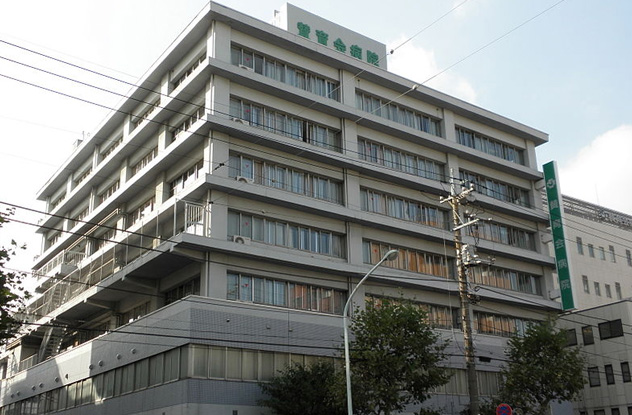

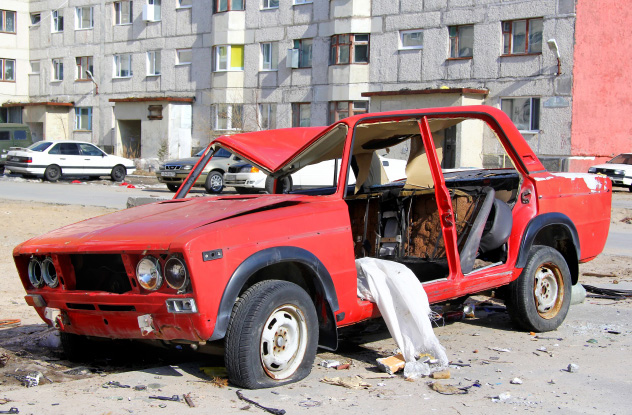
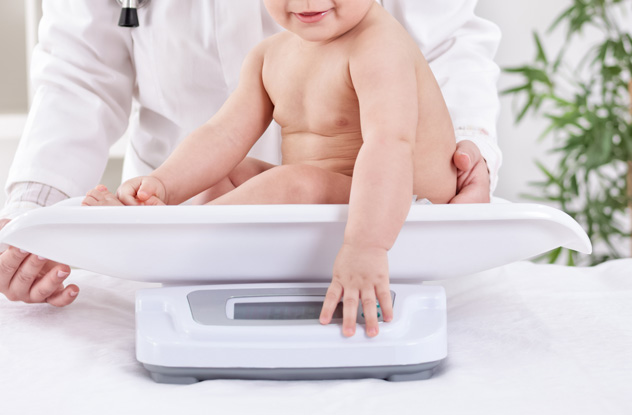
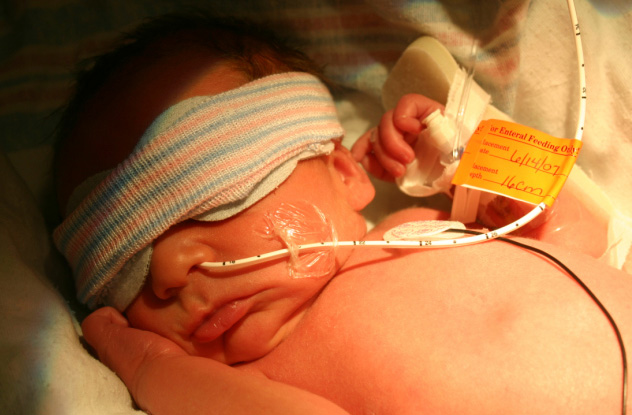
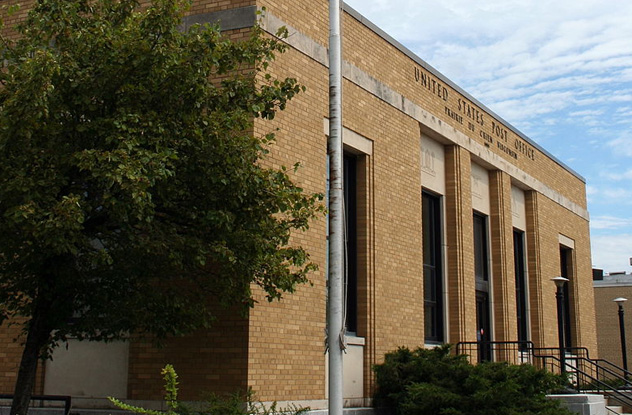

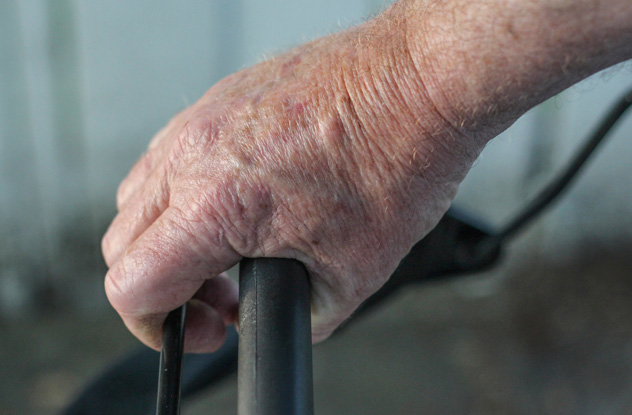
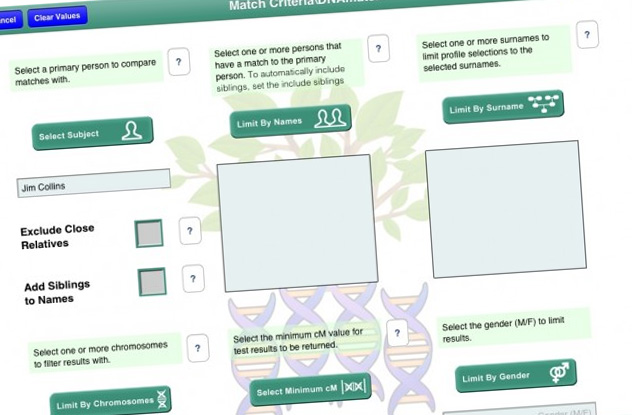
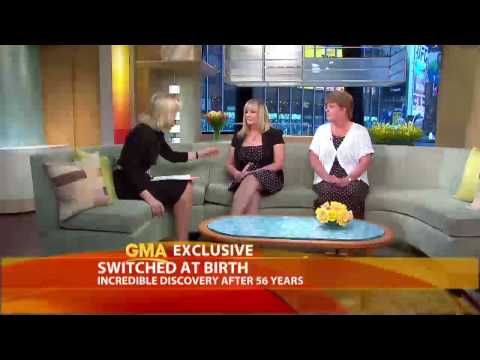
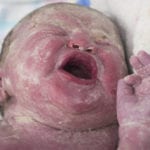


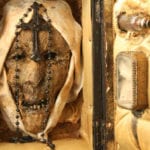
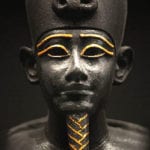







![]()

